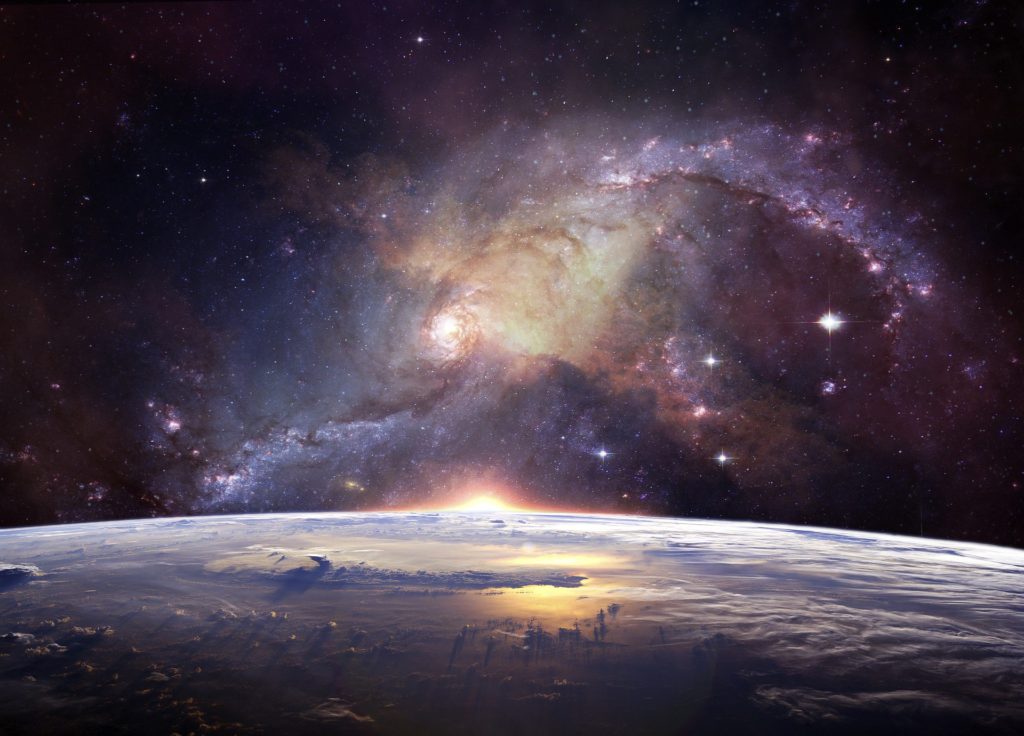
Recently, the little one has been really fascinated by things tied to space or space-related. We have these educational flashcards with associated images, & he can name all of the planets & place them in correct order from the sun by pictures alone. (Yes, I still poignantly cling to the thought that Pluto remains a planet, even though it’s been formally recategorized.) He reminds me of when I was young, myself, when I had felt enthralled by the mystery of great expanses & unknown aspects of the galaxy in wide-eyed curiosity. I mean, I grew up in the age of Space Camp (Tate Donovan, anyone?) & under the spectre of the Challenger explosion, which scarred all of us 80s kids who watched the disaster live in classrooms in grade school. I was from New Hampshire (even though I was in a Massachusetts school at the time), which meant that Christa McAuliffe left all of us kids with some trauma, as she was the civilian teacher chosen from our home state. Space, after that event, became a place of anxiety, uncertainty, incredible danger, & even loss. I think those associations remain within me. A few months ago, I watched the documentary that J.J. Abrams’ production company Bad Robot produced on Netflix called Challenger: The Final Flight, & weirdly enough two nonfiction books I recently read (Epstein’s Range & Grant’s Think Again) both cite the O-ring debacle as a key example of a failure to interpret data appropriately–with unimaginably horrifying results. With the documentary, even the opening sequence & music with archival footage of the lost astronauts haunt me, even making me feel ill & unsettled, anxious & uncomfortable. Clearly, some deep chord in me still resonates sadly with the incredible loss of that event.
In truth, I think all of us kids who witnessed the explosion still carry that unforgettable silhouette, those plumes of white billowing smoke, high in the sky of their minds, remembering our futile hope that, maybe, just maybe, someone, anyone, some one of those astronauts survived. Maybe the loss & horror of that spectacle imprinted on me & my mind a quiet disturbance associated with space, a kind of transfixed stare of seeing the staggering beauty of unknown, perilous space in all of its awe & awfulness? Space mutated, for kids like me, into a metaphor in the collective imagination of a sadness & aloof oneness, feeling detached from everything & everyone. And I’ve noticed that several recent films & streaming shows have been reinforcing that metaphor, picking up on this trope in cinematic form.
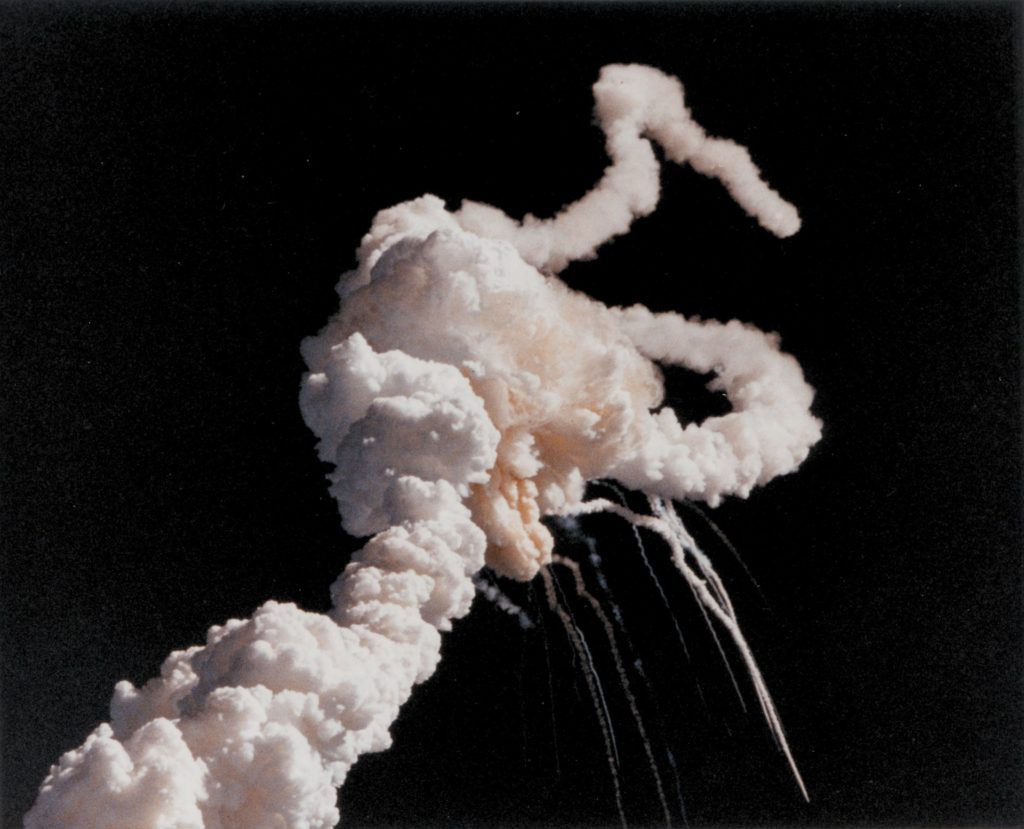
One of the more recent examples has been For All Mankind on Apple TV. The second season has really explored the kind of “what if” tied to an alternative reality & history that would have emerged from the Space Race not ending between the USA & the USSR. Episodes probe political maneuverings & considerations when boundaries & territories exist to protect & claim beyond mere Earth. One of the most memorable scenes from the season involved a solar storm with radiation that will overwhelm any human with too much exposure. Maybe it’s the idea of radiation as a silent killer, invisible but horrifyingly swift in its ability to destroy the human body? I won’t give any spoilers for those who watch the show; yet, there is a sacrifice required to save a crew, a sacrifice where the visible effects of overexposure to a dangerous environment has disastrous results for the hero(es). Not so coincidentally, on the heels of watching the Season Two finale, I watched the film Stowaway on Netflix, starring Anna Kendrick. The movie involves a crisis not unlike one from For All Mankind‘s Season Two, where a woman astronaut ventures out into a fatal solar storm in order to save another’s life, & the audience must watch in a prolonged scene with eerie tonal music what they know will be a rescue that will claim lives. The stark contrast of black space & harsh white light from the sun creates an uncanny, monochromatic image that feels unsettling, disturbing, uncomfortable, unnatural. This isn’t a kind, hospitable place where life can thrive. No. It’s a vacuum, a hostile, sterile, even barren place, where women scientists will face repercussions for their adventurous & defiant natures, for their drive to do something other than succumb to a prescribed gender role that should be an expectation. They are not maternal or fecund. And they will pay for resisting a biological imperative of creating life.
Maybe that’s part of what jars me with I see these depictions of women astronauts? I’m reminded of the high price Christa McAuliffe had to pay when she dared to leave her classroom & train to become a civilian astronaut, as filmic moments of her saying goodbye to her children play across a TV screen. That image of the woman astronaut & the price she paid becomes seared into a ubiquitous popular culture. It feels like she has to sacrifice everything in her folly for wanting the same opportunities as men.
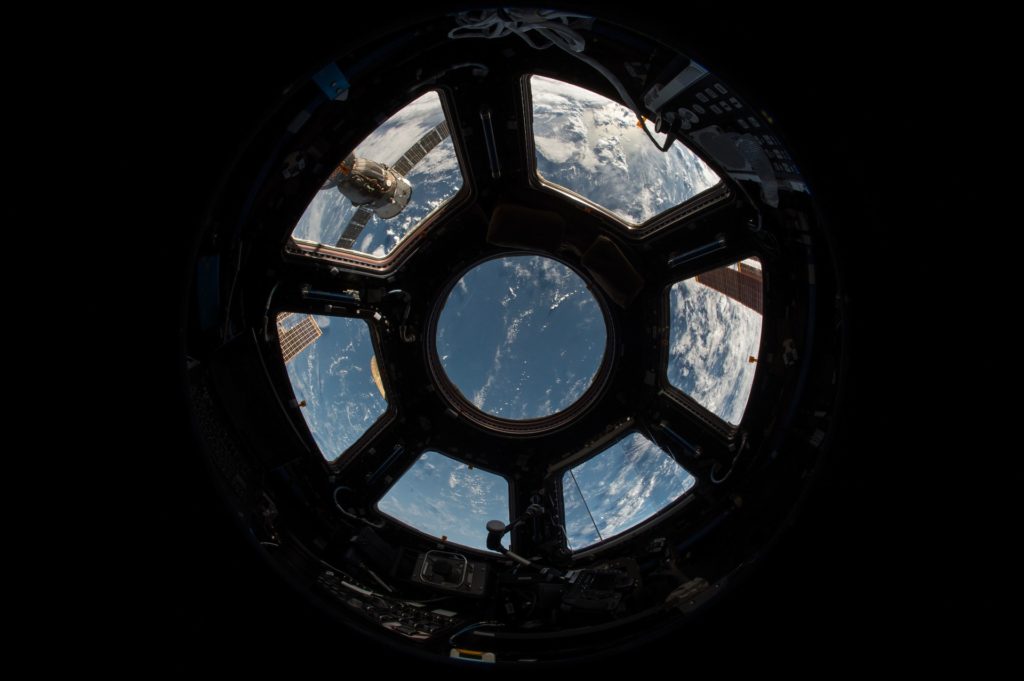
In Stowaway, there are the images taken from a capsule with a series of small windows in a circle like the one from the above picture, showing the Earth in all of its planetary white & blues. For Kendrick’s character, this view is her favorite, taken from her favorite vantage point, with her being able to look out at the Earth from space, from a distance few other human beings would or will ever see. The film reinforces almost in an extreme way the difficulty in trying to support life & growth in that sterile environment, as the ship must try to support an extra unplanned passenger when provisions were so meticulously calculated. Unlike men astronauts like Matt Damon’s character, Mark Watney, in The Martian or Matthew McConaughey’s Cooper in Interstellar, Kendrick’s character, Zoe Levenson, will pay a distinctly high price, like Tracy Stevens in For All Mankind. They won’t return home. When I see this, I’m reminded of my anger experienced when I watched Black Widow in Avengers: Age of Ultron, when Natasha describes herself as akin to Bruce Banner’s monstrosity in The Hulk because she was sterilized & can no longer bear children. What is it about women who must sacrifice motherhood or their femininity by entering space? For women introverts who choose professions or contributions to the life of the mind, there seems to a very high price demanded for that choice.
Clearly, there is some cultural moment occurring where these connections between women scientists and barrenness or loss of life due to radiation has become popular. Even Rosamund Pike’s depiction of Marie Curie in Radioactive, released on Prime Video in July 2020, reinforces this association, along with Radium Girls also released on the streaming platform around the same time.
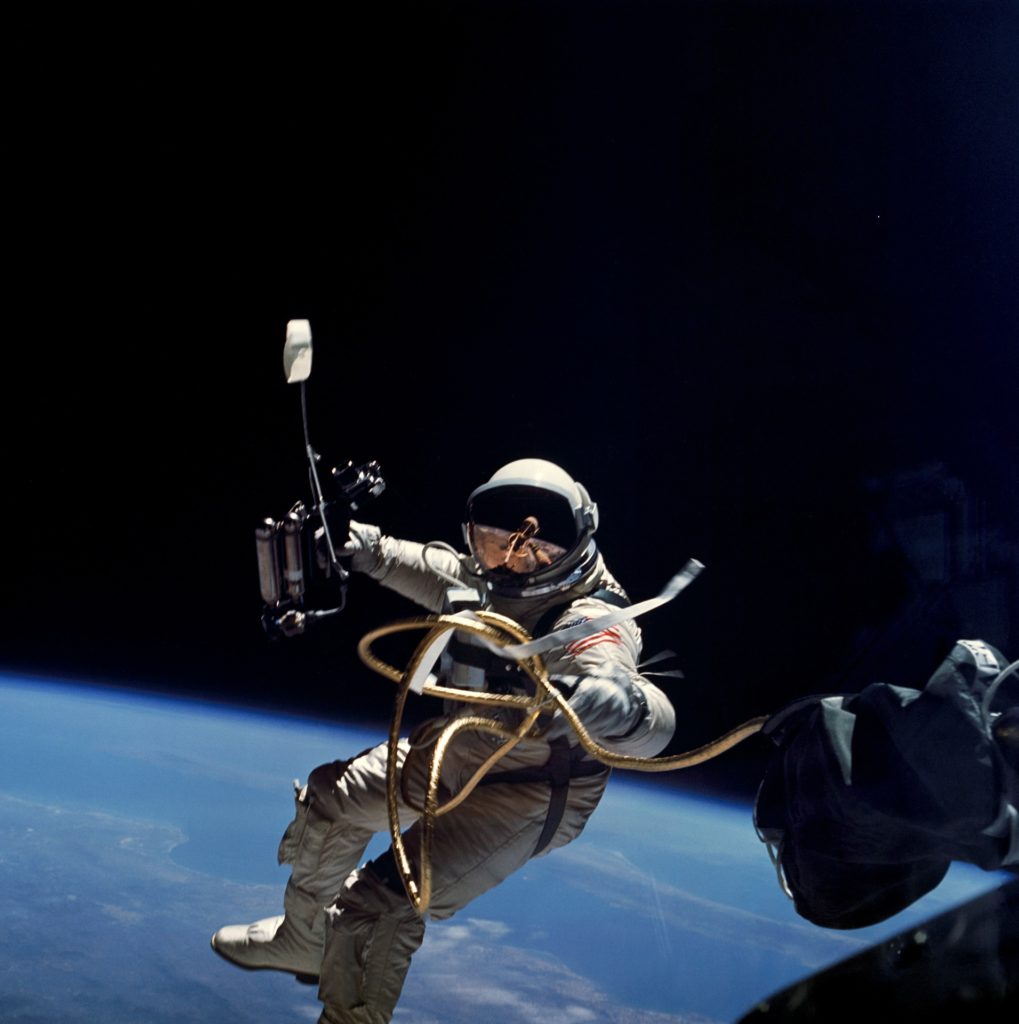
As a woman professional & introvert mother, I’m sure I have some sensitivity around these associations with & connections to loss & sacrifice. Maybe I imagine that the life of science, learning, inquiry, & discovery, requires a devotion to study & writing, activities typically done alone? The vastness of space, the blackness & unimaginable scale of emptiness, all of that creates a kind of haunting image. While it may be beautiful, it’s also frightening. I’m sure, again, this ties back to my memory of the Challenger explosion, that visual trauma that inextricably tied space exploration to feelings of a sickening loss. I think of Elton John’s “Rocket Man,” a song I listened to quite often as my sister was a huge fan & would play his record & tapes on a loop. The lyrics, “I miss the Earth so much I miss my wife / It’s lonely out in space / On such a timeless flight… And I think it’s gonna be a long long time / ‘Til touchdown brings me ’round to find / I’m not the man they think I am at home,” stay with me. Or those of David Bowie’s “Major Tom,” “For here / Am I sitting in a tin can / Far above the world / Planet Earth is blue / And there’s nothing I can do / Though I’m past one hundred thousand miles / I’m feeling very still… Tell my wife I love her very much she knows.” These songs, combined with that Challenger footage, stamped space in my mind & memory as a place of alienation & aloneness, solitude to an extreme detriment.
For introverts who treasure their alone time, these pop culture references take loneliness to such an extreme that they can feel punishing, shameful. For me, I feel that pain quite acutely. I was alone a lot as a kid, despite being the youngest of six. And while I loved being alone, there were those times when I was also lonely, as even introverted human beings also need connection as social creatures at some point.
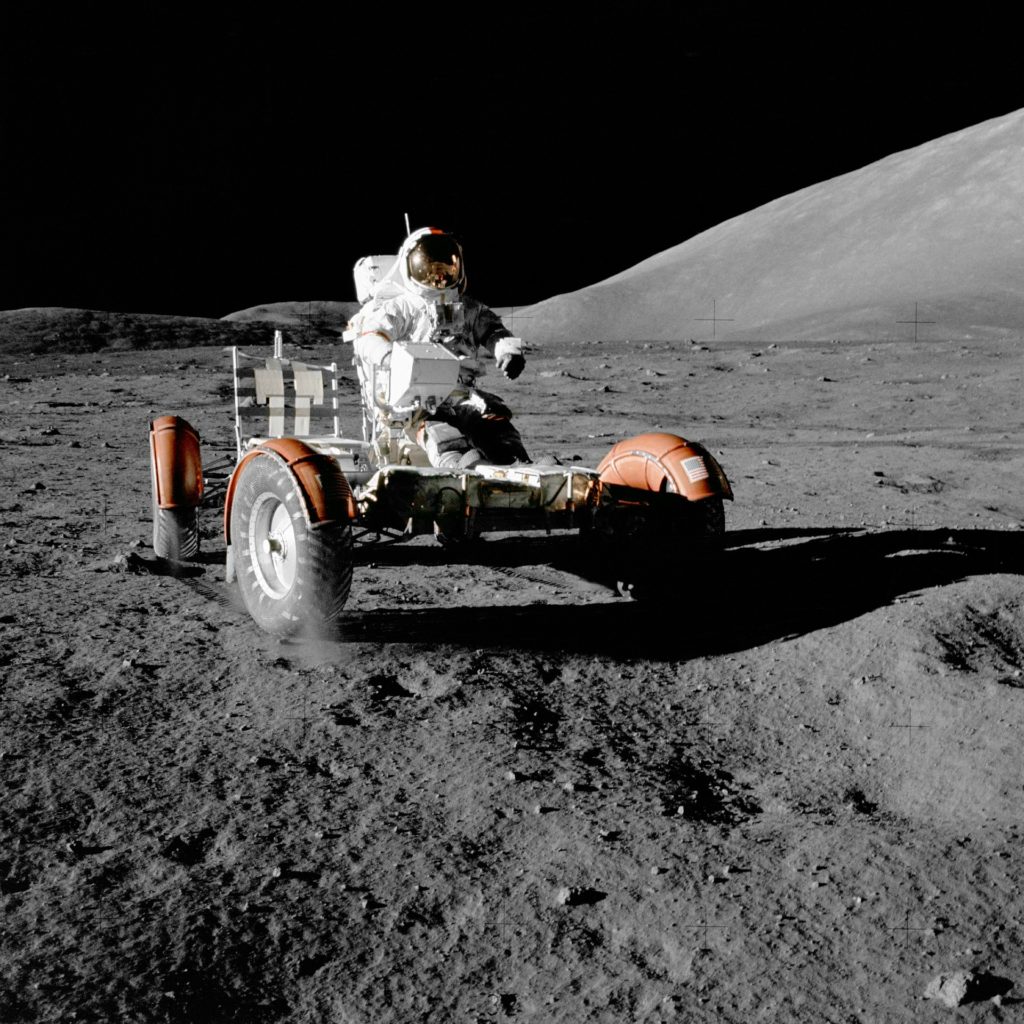
Thus, my curiosity arose from watching these films & TV images, & streaming scenes & cinematic moments which seemed to be permeating the COVID-19 pandemic world & related pop culture. What was it saying about us that we have been focusing on these kinds of images over & over again, in different versions? I really don’t know what to make of it, beyond these stream-of-consciousness types of reveries described here. Really, I’ve just noticed a pattern or series of coincidences involving women & space & science & being alone: Sandra Bullock in Gravity & Jodie Foster in Contact, along with Amy Adams in Arrival, or even Sigourney Weaver in Alien. These women involved in space or with creatures from space don’t seem to have happy personal lives, save for Jessica Chastain as Murph in Interstellar who eventually manages to have a family. And, so, I’m left with this symbolism of space that affects women in specific ways that appear to differ from men. Weaver’s Ripley is likely the closest thing to a triumphant woman hero out of this canon, & even then I wonder about how she takes on distinctly masculine traits that somehow justify her ability to survive.
Anyway, these are some of the topics & images on my mind as of late. What are your thoughts about these films, dear reader? Am I off-base in my thinking or descriptions here? What patterns have you noticed?
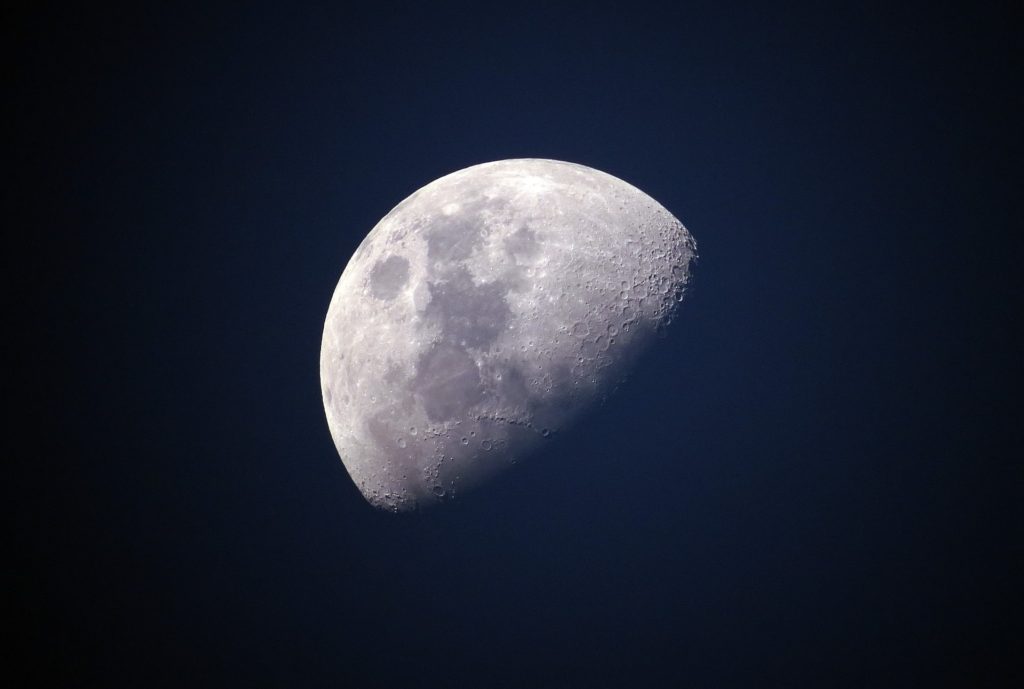
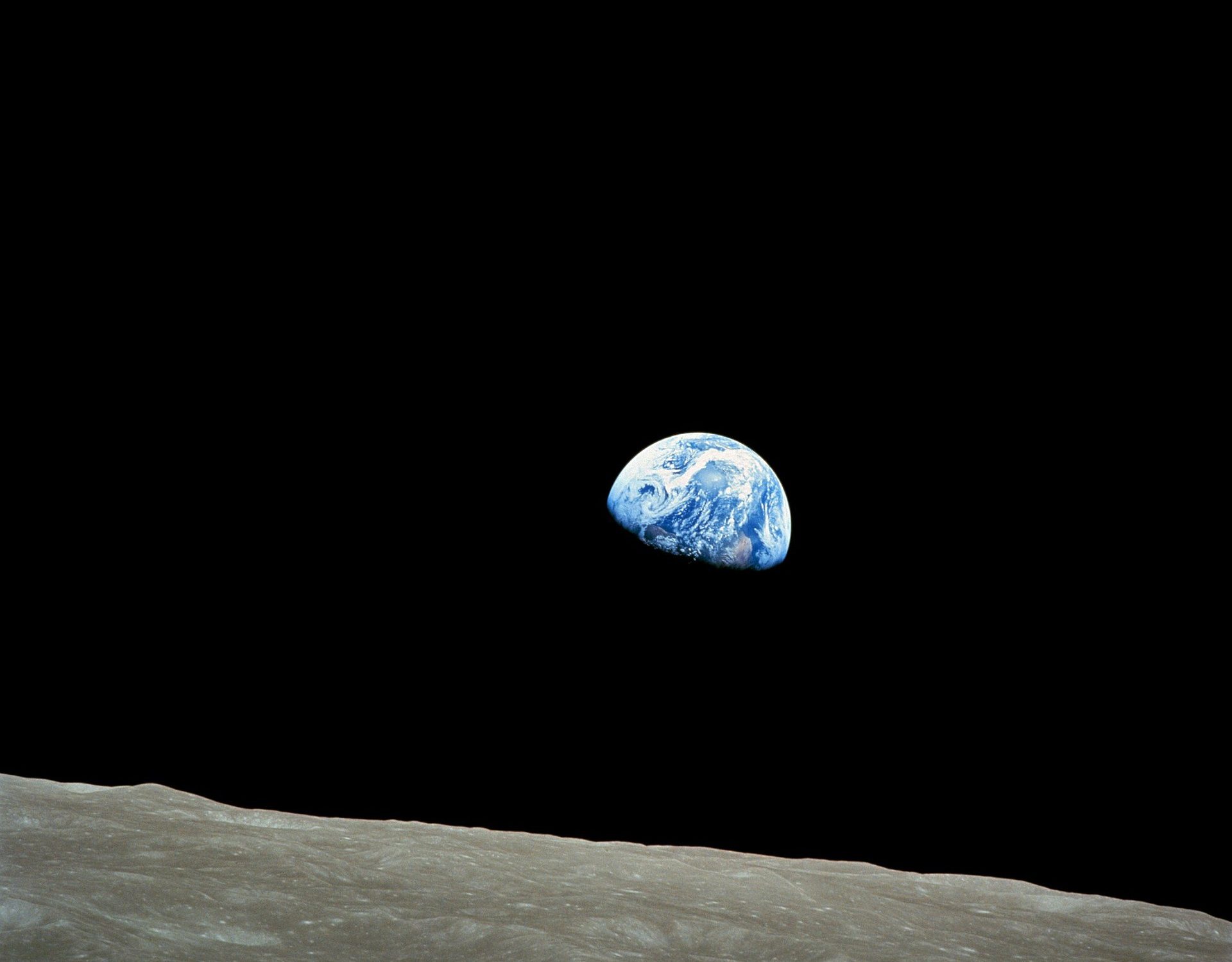
I watched that Challenger documentary too. It haunts me, it was just so tragic and most likely avoidable if they weren’t in such a hurry to launch.
Yes. The fact that they were warned & had the data that showed the fuel leakage when the O-rings were below 50 degrees Fahrenheit, on a morning when everything was frozen solid… It’s beyond imagining WHY they made the call to proceed anyway. Completely avoidable, but the signs were ignored. Very, very sad.
It’s shocking isn’t it. They were so afraid of not being funded and losing the public’s interest that they ended up risking it.
Many of these films explore the mysterious aura of space and the surprises it could behold, thus drawing an audience that relishes the fear and love of the unknown. When confronted with the idea of ‘the realm beyond’, a picture of solitude and disconnection instantly hits the minds, conveying a bleakness that is also dangerous. And when it comes to women, I think their sacrifices begin and never end right here on Earth. How can it be any different in outer space then? Thanks for sharing this. I too can never forget watching the Space Shuttle Challenger explosion.
Wonderful thoughts. I really appreciate your insight & response. In ecofeminism, we see that feminizing of landscapes going back to Greek & Roman myth, & even prior. So, I sometimes wonder about the contrast of transplanting the fertile feminine in a sterile vacuum of space, where nothing can grow. The magnitude of infinite space feels oppressive to even imagine, but at the same time wondrously open & expansive. Of course, there are always exceptions with different gender identities that disprove the generality, but at least in a literary tradition & in these depictions women remain in a vexed state of liminality.
That is a perplexing truth. Undeniable.
being a woman who has no desire to be a mother, I find that stereotype of female = fertility to be ridiculous and damaging.
and I see Ripley as a heroic person, i don’t assume being strong and suriving is just a “masculine” thing.
Thank you! I totally get & understand your position & agree. I think gendering heroic characteristics IS damaging.
Every person watches films, sees events and then filters those through their own personal lens. As a professional in the veterinary field (I started out when there weren’t many women in Vet Med) I’ve seen the changes that happen when gender roles are abandoned. On the plus side there are lots of women Veterinarians and on the downside the average wage has dropped. That is probably not due to the profession but to the gender expectations of the larger society. Currently there have been 15 lives lost in space and 4 have been women. Everyone talks about Christa McAuliffe but no one mentions Judith Resnik who died on the same flight… It is perspective. NASA currently has 33% female astronauts but historically it is only 16% but 26% of astronauts that have died were female. As more women enter space exploration, more will lose their lives. But in the future the number of women astronauts will eventually reach parity as will the percentage of lives lost by gender. It follows the same in any endeavor – from colonizing the “New World” to the Western Expansion, women will follow and sometimes lead the way and the cost is high… But in all these things the women made that choice as independent individuals.
This fits right in with a book that I just ordered & am about to start reading… INVISIBLE WOMEN: DATA BIAS IN A WORKD DESIGNED FOR MEN by Caroline Criado Perez. The statistics you mention are the very reason we need to be better at locating unconscious (or even blatant) bias connected to gender in our understanding & associations with the information we think we “know.”
My family lived in Orlando during the height of the Apollo program. It was when space truly was the final frontier.
I remember watching the Challenger launch while eating lunch and realizing that something had gone terribly wrong. The cafeteria went completely silent. It was the end of innocence as to the limits of what mankind could accomplish.
Wow! Thank you for sharing your memory. I completely agree. That tragedy was my first cultural moment of witnessing a loss that made me sick to my stomach. The horror of it of watching it live… 9/11 is the only other televised event in real time I can liken the effect to in modern memory. A loss of innocence, certainly.
Very exciting. I have not seen much movies related to space. Your write up is engaging